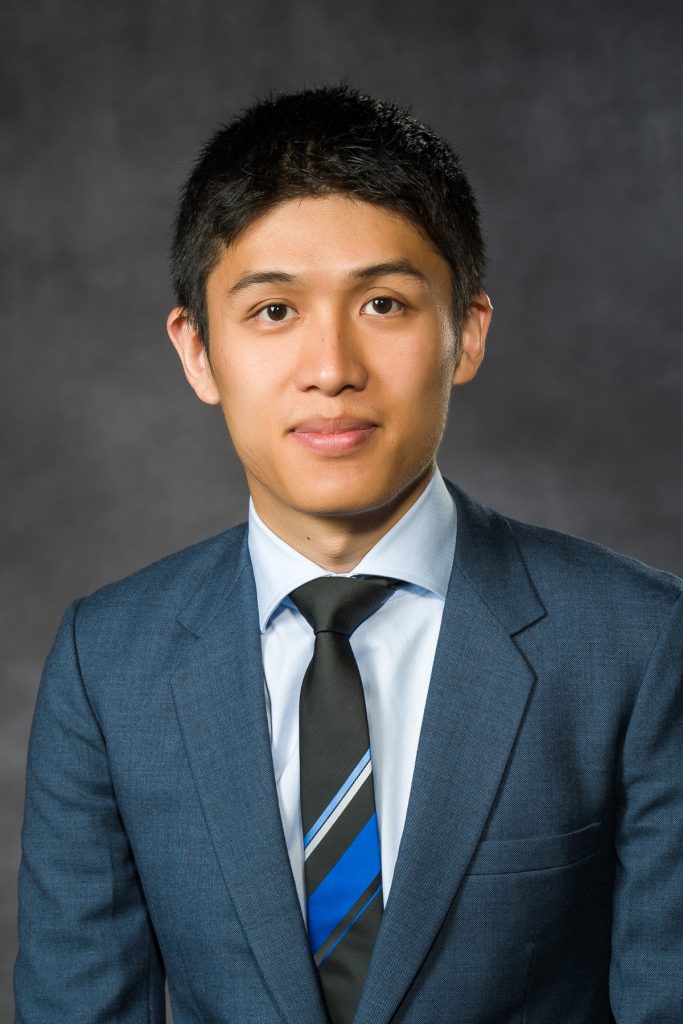
Jesuit Novice Sebastian Tong, S.J., recently completed his Poverty Mission Experience at Saint Peter’s University. Tong, originally from Canada, was on campus for five weeks working with The Campus Kitchen, St. Aedan’s: The Saint Peter’s University Church youth group and at a local homeless drop-in center. His experience at Saint Peter’s has enhanced his Jesuit journey and allowed him to inspire the students who he worked with in The Campus Kitchen. He earned a bachelor’s degree in sociology and medical science from Boston University, a master of public health from the Harvard School of Public Health and a doctor of medicine from the Boston University School of Medicine.
Q. What interested you about becoming a Jesuit?
A. I decided to take a leap of faith. It took me a while to get to that leap, but I eventually got there. I admired how the Jesuits focused on incorporating faith into everyday life. They did things that were practical and I liked the focus on discernment Jesuits practiced. I liked the fact that Jesuits accompany others and help each other in a spiritual way.
Q. What other experiences does becoming a Jesuit entail?
A. There are a number of structured experiences that were passed down from our founder Saint Ignatius. First, I participated in a long retreat—it was 30 days with other novices—we completed the Spiritual Exercises of Saint Ignatius. The Poverty Mission Experience or “poverty experiment,” which I completed at Saint Peter’s University required me to be in contact with the poor every day. We are all required to spend some time in a hospital and lastly, you end your journey on a “long experiment” retreat where you live with other Jesuits in a community.
Q. What is your long term goal as far as being Jesuit?
A. I want to live intentionally each day, love those around me and be present. I want to live in the present. Every day I want to ask myself, “Is this what God is calling me to do?”
Q. What were the requirements for the “poverty experiment?”
A. The goal of the “poverty experiment” is to be with the poor. I was assigned to The Campus Kitchen, St. Aedan’s Youth Group and a drop-in homeless shelter. At The Campus Kitchen, I worked with students; we cooked and delivered food to people in need.
Q. Did you experience any challenges during your time here?
A. At The Campus Kitchen, we always had to deal with the unexpected. For example, each Wednesday, an enormous amount of food is donated. One time, we got 80 pounds of radishes. We didn’t know what do with them all. The only thing I knew how to do with radishes was to put them in salads. We looked up recipes for what to do with all the radishes and came up with a dish involving roasting them with rosemary. At The Campus Kitchen, we always had to come up with creative ways to use what we had.
Q. How did reality compare to your expectations?
A. I did not know much about Saint Peter’s before coming here. My mentor told me “Let the experience be what the experience is,” meaning that I should come into the situation as open minded as possible.
Q. Do you think the efforts at Saint Peter’s University are helping the larger community?
A. They are helping the community, but the larger thing is that Saint Peter’s University is letting students experience what it is like to help people. The students are growing with the idea of service ingrained in them. The bigger thing is that Saint Peter’s is building leaders that will keep volunteering and helping those around them even after they graduate.
